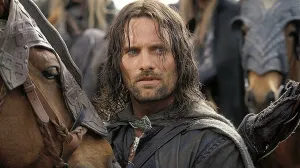
(Photo: Image Comics)
Videos by ComicBook.com
The Walking Dead is over. That sentence has a strange ring to it, especially if you’re someone who has been following the series since close to day one. 193 issues. 16 years. 9 seasons of television (with at least 1 more to go). 4 compendiums. There was so much of it and such a reliable record of quality, that it seemed like The Walking Dead might go on forever, like most big name series at Marvel or DC. We know that’s not the case now as Robert Kirkman and Charlie Adlard are dropping their final issue (almost) to complete surprise.
This series was the golden boy of creator-owned comics publisher Image Comics long before successes like Saga and The Wicked + The Divine appeared. It was one of the early series to attract great option offers, sell reliably well, and pull readers into the Image Comics brand, as early as 2003. It was a staple of both the publisher and many local retailer’s shelves. With it suddenly gone, there is a big gap to fill for both. That raises the question whether Image Comics can publish another series with the same widespread appeal as The Walking Dead.

(Photo: Image Comics)
The History of The Walking Dead
In order to discuss what repeating The Walking Dead would mean, it’s essential to understand exactly how big The Walking Dead really was. The series debuted on October 8, 2003 in a generally hostile market with far less love for creator-owned series than it has today, then you have to consider that very few readers recognized the names of co-creators Robert Kirkman and Tony Moore at the time. Its first issue sold only 7,266 copies. It had almost tripled that number by issue #25, and was reliably selling about 23,000 copies by The Walking Dead #69, when the television series was first announced. Those sales placed it in the top 100 for the month, the only comic from Image to do so (doubling the sales of their second-highest entry).
Things only grew after the launch of the television series with average sales reaching approximately 73,000 issues per month between the first and second season. That was only the single issues in the direct market. Thousands of copies of each trade were sold each month as they became a staple in bookstores, as well. Merchandise was soon everywhere as the television series became a national phenomenon. There were people drinking out of The Walking Dead mugs at work and wearing The Walking Dead T-shirts on the weekend. Even as sales have dropped over the past year, the comic series remained a top-seller in the direct market with average sales above 40,000.
It cannot be overstated exactly how big The Walking Dead was for comics and Image Comics alike.

(Photo: Image Comics)
Creator-Owned Comics’ Black Swan
Some creators, publishers, and journalists will talk about discovering “the next The Walking Dead in comics,” as if this feat is inherently repeatable. While Robert Kirkman might be living the dream of almost any comics creator, what he accomplished isn’t so much finding one great idea as it is hitting the lottery. It’s not just that the concept of a Romero zombie flick that never ends was a good idea for the moment, it was also one with two dynamic creators to back it up and a lot of potential for adaptation (all of which was excellently executed by AMC). The string of necessary elements and luck is pretty long.
Image Comics hasn’t been hurting for success beyond The Walking Dead, though. Saga has proven to possess just as much crossover potential with the book market, even though the odds of a film or television adaptation ever coming to be are low. Other comics from Brian K. Vaughan, as well as Mark Millar, Robert Kirkman, and other big names all sell respectably. Millar and Kirkman regularly have multiple possible adaptations in the works as well. There are lots more crossovers in development elsewhere, including many from the likes of Matt Fraction, Kelly Sue DeConnick, and Kieron Gillen under the Milkfed brand. It’s not a dichotomy between success and failure, but a matter of to what degree of success many Image series will climb.
None of these concepts have neared the heights that The Walking Dead has reached. Even Saga has not reached average sales as high The Walking Dead at its peak, balancing around the 50,000 unit mark before its hiatus began. If readers expect another The Walking Dead to emerge soon, they are likely in for a rude surprise.

(Photo: Image Comics)
The Bright Future of Image Comics
Image Comics certainly isn’t going to be in for any such thing. They will likely see their market share drop, at least in units sold, with such a reliable series dropping out. However, the overall health of the brand remains strong with a wide-array of successful series, rising stars, and exciting announcements. They have already swept the nominations for the Best New Series award at the Eisners and will likely take home more than one award at its ceremony later this month.
Sci-fi satire like Crowded, paranormal conspiracy like Gideon Falls, and awe-inspiring fantasy like Isola shows just how diverse the current lineup of creator-owned comics is. Each of these series is delivering a slam dunk in comics form with some already in development for television or movies. These new series are building a new audience as more Image Comics classics reach their conclusions. The Wicked + The Divine and East of West have both reached their final arcs, but will undoubtedly remain favorites in collected formats. Saga also has a seemingly long run still ahead of it after returning from hiatus.
Readers can only imagine what new series will be announced before the end of 2019, but only two things seem certain. First, these series will continue to represent a diverse array of excellent stories and storytellers. Second, none of them will reach the same highs as The Walking Dead and there’s absolutely nothing wrong with that. Rather than focusing on past success, readers should seek to find stories where they can be part of the next big thing, no matter how big it turns out to be.








